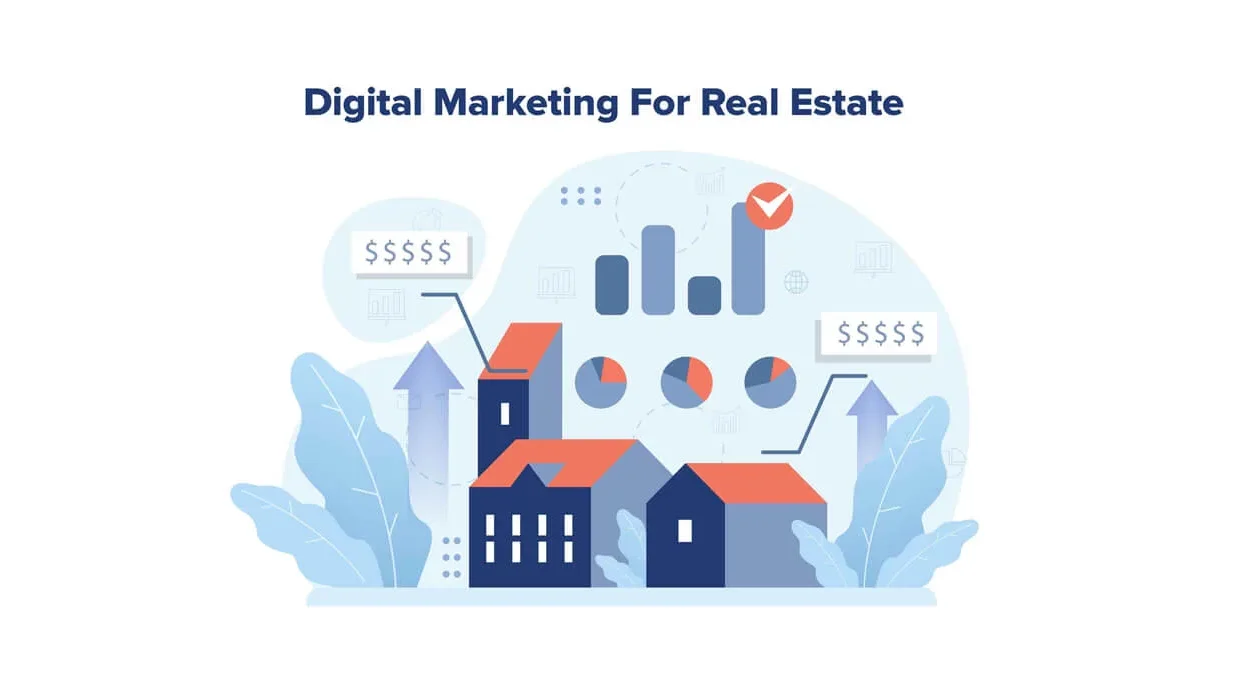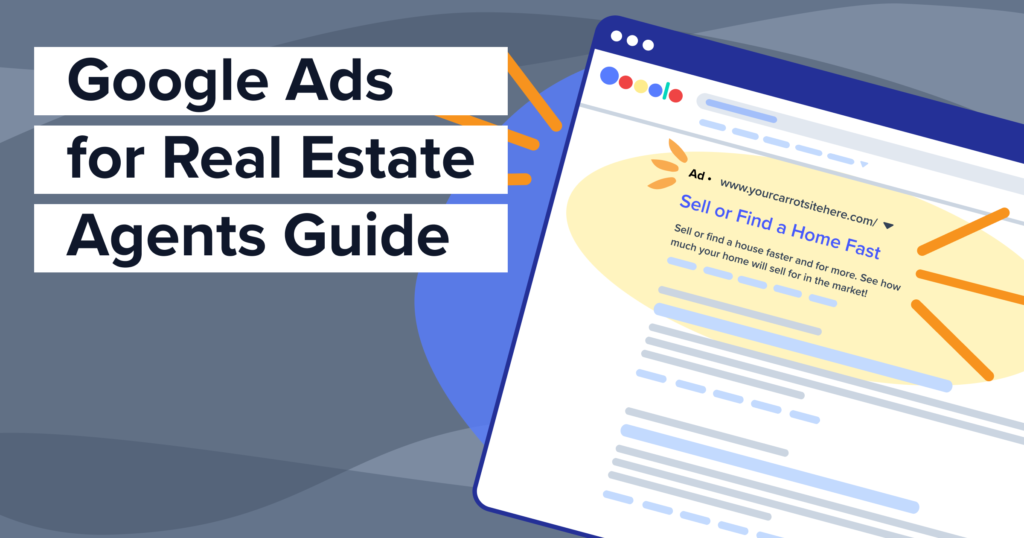In this fast paced world of digital technology, traditional marketing approaches have ceased to be effective for real estate experts desiring to keep pace with competition. With the advent of digital marketing, how real estate businesses attracts, engages as well as converts clients has changed. The rise of the internet has brought a myriad of tools and strategies that can be utilized in boosting visibility and driving growth such as social media and search engine optimization (SEO). Let us delve deeply into the role played by digital marketing in revolutionizing the real estate industry.
Digital Marketing for the Real Estate Industry: Understanding the Landscape
The scope of digital marketing landscape for real estate is quite expansive with various platforms and techniques employed. Digital marketing has moved far from relying on printed ads or direct mail typical of traditional advertising campaigns since it uses online channels to reach people. Major aspects comprised are:

Search Engine Optimization (SEO): Improving your website’s Google position. For instance, using relevant keywords like “New York homes for sale,” would be beneficial in attracting organic traffic to a realtor site from potential buyers or sellers.
Pay-Per-Click Advertising (PPC) allows for targeting specific keywords and demographics using platforms such as Google Ads. PPC campaigns can make your website get instant traffic and are especially useful in generating leads.
Social Media Marketing is where you engage with potential customers on channels like Facebook, Instagram, LinkedIn, or Twitter. It paves the way for advertising based on target audience, content sharing, community establishment.
Content Marketing means producing valuable contents such as blog posts, videos, and infographics. Content marketing is a good way to establish your expertise in the real estate market and provides helpful information to possible clients.
Email Marketing entails personalizing emails sent to cultivate leads and maintain relationships with former clients. In addition, newsletters containing industry updates or promotional offers may be part of email marketing campaigns.
Getting Effective Digital Marketing for the Real Estate Industry
A well-built online presence is vital when it comes to attracting and retaining clients. Here are some strategies that you might want to employ:

Professional Website: In terms of user-friendliness, mobile responsiveness, and visual appealability among others features of your website it should posses high-quality property listings, simple ways to navigate pages through and obvious calls to action (CTAs).
Local SEO: Optimize my site for local keywords, so as to lure clients around you, which entails creating and optimizing local backlinks and Google My Business listings.
High-Quality Content: Frequently produce written or visual content that deals with widespread questions and concerns from your target market. Some of the topics may include tips on buying a house, market trends or neighborhood guides.
Leveraging Social Media in Digital Marketing for the Real Estate Industry
Through social media platforms, real estate professionals can connect well to their target audience. Here are ways through which you can make it happen:
Visual Content: Upload high-quality images/videos of properties, virtual tours and behind-the-scene looks. Visual content is very interesting and can be useful in demonstrating the uniqueness of property.
Targeted Advertising: Use social media platform’s targeting feature to reach particular demographic segments based on location, interests. This will make advertising more effective.
Engagement: Actively comment back on your audience’s comments/questions/complaints/remarks/feedbacks. Establishing relationships and responding to queries can enhance your reputation among customers because they would trust you better if they find that you could care about them.
Digital Marketing in Real Estate using Data and Analytics
You can make data-based decisions that will revolutionize your marketing efforts. How to use analytics effectively:
Performance Tracking: Measure website traffic, analyze user behavior and gauge conversion rates using applications such as Google Analytics. This helps to identify what is working and where there is room for improvement from this data.
A/B Testing: You will need to experiment with different ad copies, email subject lines plus landing page designs, which resonate best with your audience. A/B testing helps you refine your strategies for better outcomes.
Lead Tracking: Set up efficient systems for lead monitoring and control. Use Customer Relationship Management (CRM) software to help you organize and nurture leads throughout the sales process.
Seamless User Experience in Digital Marketing for Real Estate
To convert visitors into customers, there must a be smooth user experience. Consider the following:

Fast Loading Times: Slow websites discourage potential clients Optimize your site speed in order to enhance users’ experience and reduce bounce rates.
Mobile Optimization: Most property searches happen on mobile devices Make sure your website is mobile-friendly and delivers consistent experiences across all devices.
Ease of navigation: Ensure that users can locate what they are seeking with ease. User satisfaction is enhanced by nice menus, a search function, and well-organized content.
Keeping Abreast of Digital Marketing Trends in Real Estate
The landscape for digital marketing is constantly changing. Here’s how to stay current with the latest trends and technologies;
Artificial Intelligence (AI): Look into AI-powered chatbots, predictive analytics, and personalized marketing. Through this, you will be able to improve interactions with clients and streamline your processes.
Virtual Reality (VR): You should possibly think about utilizing VR to give virtual property tours. This type of immersive technology can allow potential buyers to see properties from their homes.
Influencer Marketing: Consider partnering with local influencers or industry experts who will help you reach out to more people and gain more trust from them. Influencers can help promote your brand and attract a targeted audience.
Conclusion
Digital marketing for the real estate industry is a powerful tool for professionals looking to thrive in a competitive market. By building a strong online presence, leveraging social media, utilizing data-driven insights, and staying updated with trends, you can enhance your marketing efforts and achieve greater success. Embracing these digital strategies will not only help you reach a wider audience but also build lasting relationships with clients in the ever-evolving real estate landscape.
